Project Update

August 12, 2022
What’s Happening in Traffic This Week
Paving on the South Project
Over the next few months, paving will be ongoing at various locations on the South project, including Old Banff Coach Road, 17 Avenue S.W. and Highway 8.
Please watch for flag people directing traffic.


REMINDER: Ramp from Valley Ridge Boulevard to Westbound Trans-Canada Highway Closed
The ramp from Valley Ridge Boulevard to westbound Trans-Canada Highway is closed for approximately one month while the permanent interchange ramps are constructed.
Westbound Trans-Canada Highway access is provided at the Bowfort Road / Trans-Canada Highway interchange.
REMINDER: Overnight Top Lift Paving on Trans-Canada Highway and Valley Ridge Boulevard N.W.
Intermittent lane closures will be required every night this week from 7 p.m. to 6 a.m. on Valley Ridge Boulevard N.W. and on Trans-Canada Highway for top lift paving. Delays are expected.
All work is weather dependant. Please check 511 Alberta and The City of Calgary’s traffic information map for up-to-date information on traffic detours and speed reductions. For all other project information, please visit westringroad.ca.
We appreciate your patience during construction.

Valley Ridge Fence Rehabilitation
The existing fence behind Valley Crest Close N.W., Valley Stream Circle N.W. and Valley Stream Close N.W. has some broken and loose boards due to age and weathering. Rehabilitation of the damaged sections is expected to begin this week and take approximately one month to complete (mid-September).

Residents can expect intermittent gaps in the fence panels and some noise from small machinery or equipment, such as skid steers or backhoes, while this work is ongoing.
Valley Meadow Close N.W. Noise Attenuation Relocation
Beginning this week, the noise attenuation structure adjacent to Valley Meadow Close N.W. will be relocated closer to the roadway.
Work is anticipated to take two to three months to complete.
Residents can expect to see small machinery or equipment on site while this work is completed and may hear additional noise as new piles are installed.
East Project Limits
Ramp construction at the far east project limits is progressing now that the bridge and retaining walls are in place.
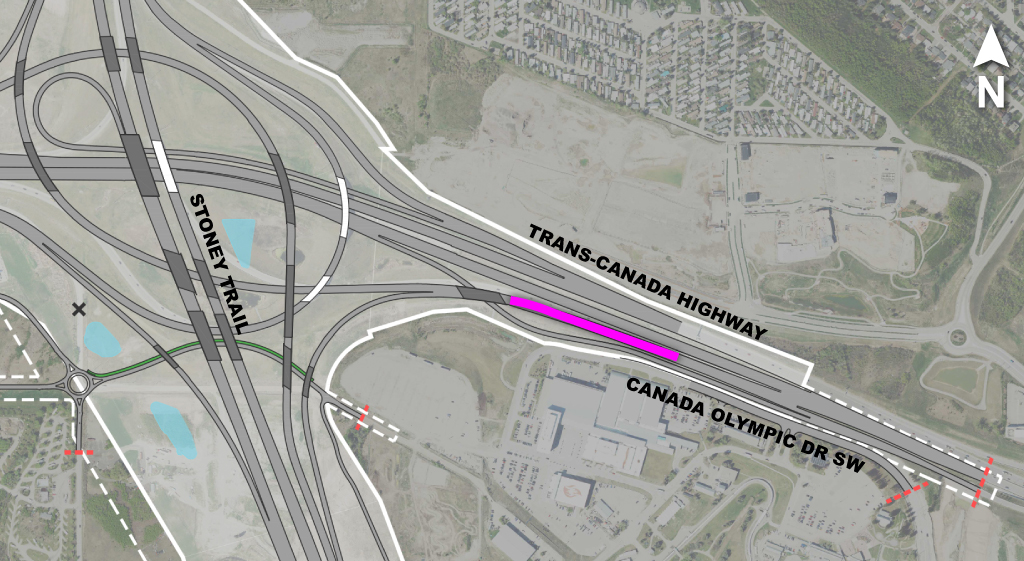


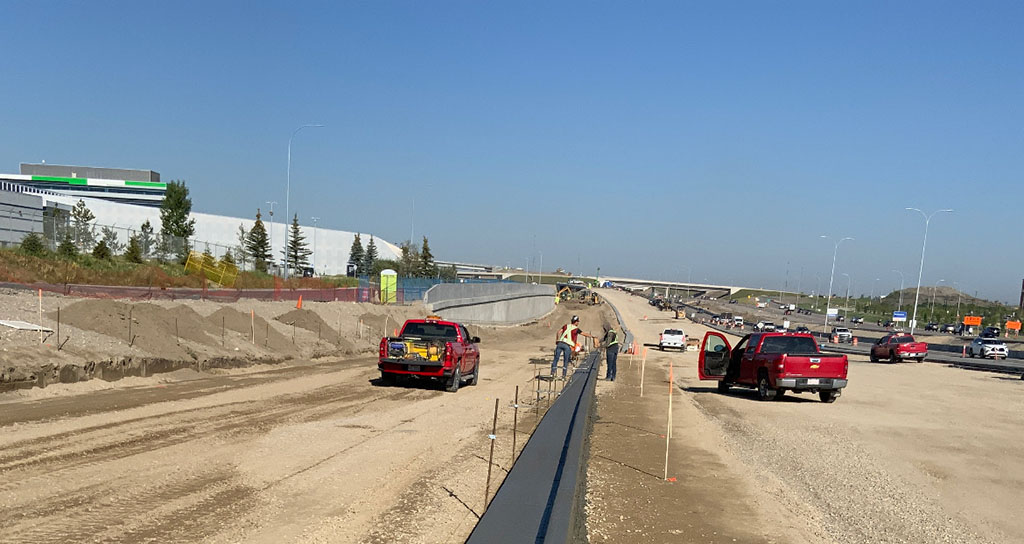
Trans-Canada Highway Improvements
Just west of Crestmont, the results of months of earthwork are starting to be visible.


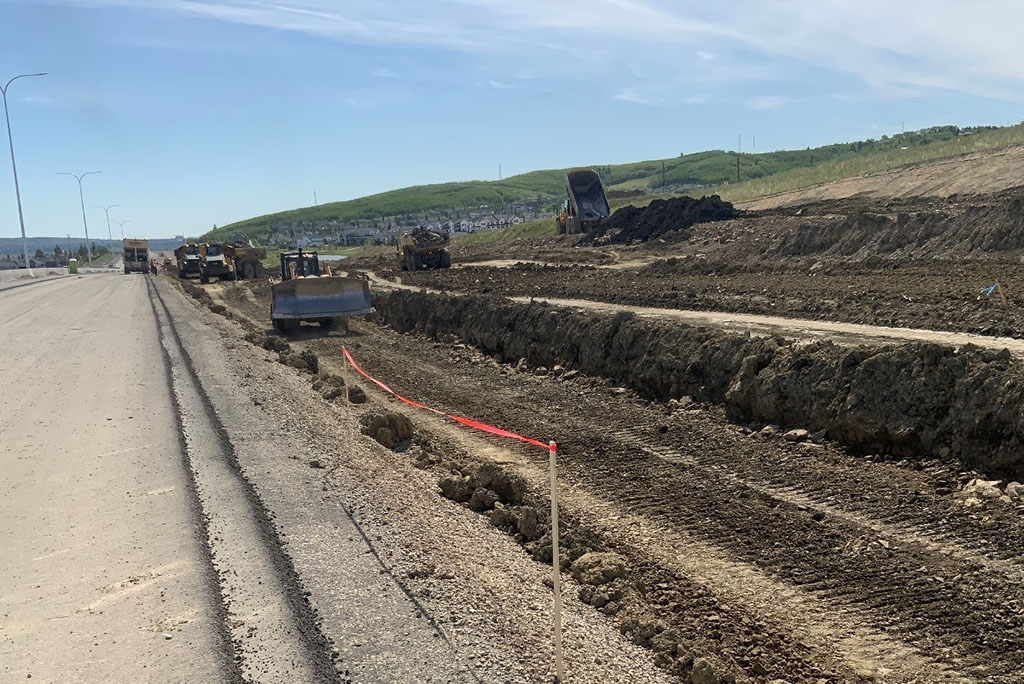
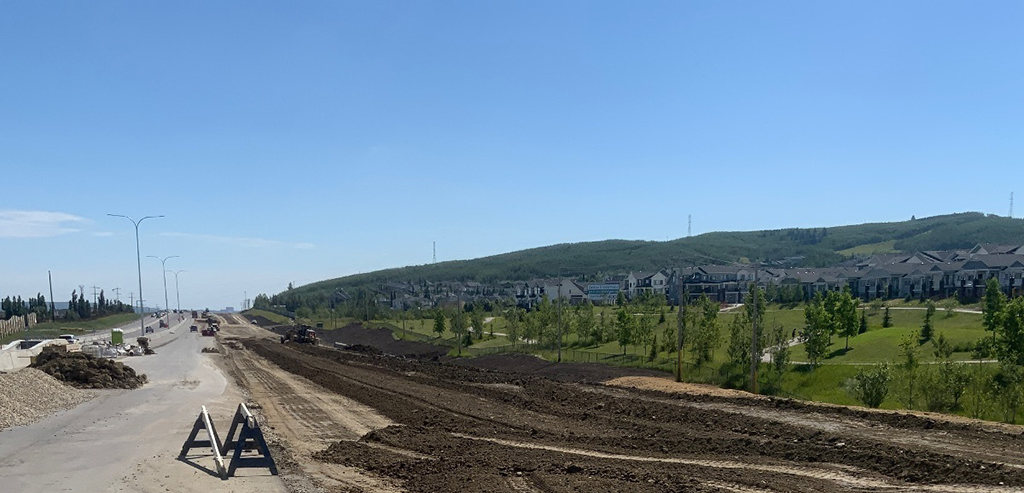

Conventional Abutment Construction
The bridge between Highway 8 and 17 Avenue S.W. allows traffic from Highway 8 to merge onto northbound Stoney Trail without crossing paths with traffic exiting Stoney Trail to 17 Avenue S.W. This type of bridge is known as a basketweave bridge. (For more information about why this is important, check out our video about weaving.)
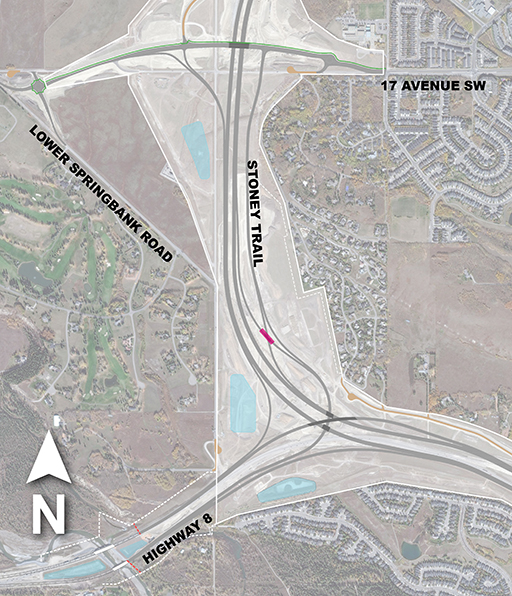
Bridge abutments support the superstructure (girders and deck) and road embankment.
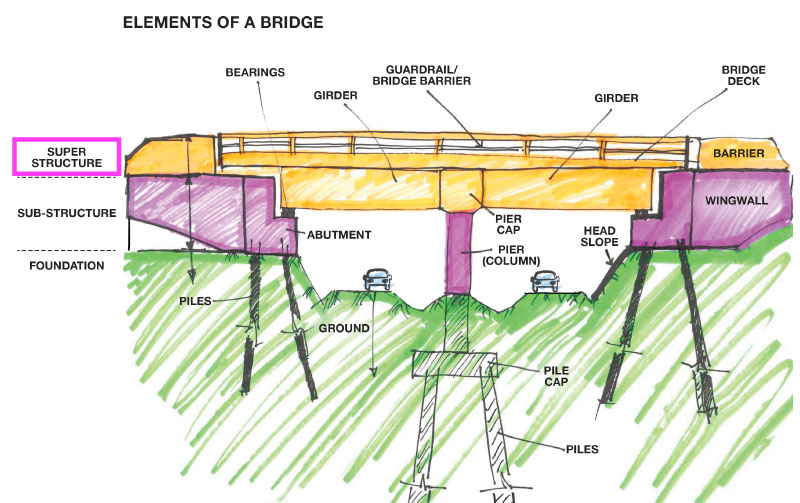
There are two main types: conventional and integral abutments. The difference between the two is the rigidity of the connection to the superstructure. On an integral bridge, the girder ends are integrated into the abutment by being encased in concrete, resulting in a rigid connection between the abutment and the girders. On a conventional bridge, the girders are seated on bearing pads and not directly connected to the abutment.

A conventional abutment is being constructed for this basketweave bridge.






In areas where settlement is expected, a settlement plate is installed to monitor how much settlement is occurring. A wood or metal base plate is installed and then a reference rod (also called a riser pipe) is attached. The elevations of the settlement plate and reference rod are recorded so they can be compared to elevations after fill is added and compacted.

Semi-permanent Stockpile North of Discovery Ridge
A semi-permanent stockpile will be placed just north of Discovery Ridge Way S.W.

Residents can expect to see an increase in construction activity along the limit of the Transportation Utility Corridor (TUC) in the area where the stockpile is being constructed, including bulldozers, excavators and trucks hauling materials. Crews will remove the topsoil, place fill material, replace the topsoil and seed the stockpile.

